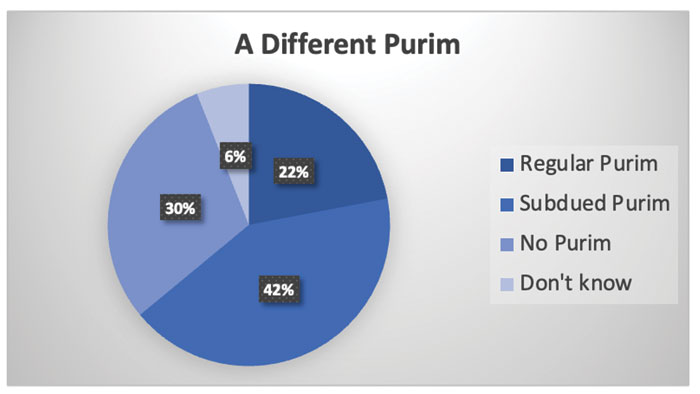
Our tendency to look for the blameworthy often hides a simple truth: There’s more than one party to blame. Such is the case with the current tension between Jerusalem and Washington. Israel’s government “lost Washington in six months,” commented a leading Israeli commentator. But a reverse headline would be as valid: The U.S. government “lost Jerusalem in six months.” Of course, one could argue that it’s Israel who needs Washington more than the other way around. And yet, as Israel fights an existential war that the U.S. aims to affect, losing Jerusalem is a problem. And losing the argument is a problem.
When the war started there was a short honeymoon: President Biden demonstrated his commitment to Israel’s security in a way that Israelis admired. What happened since then? There are two basic story lines available for those wanting to answer the question. One — Israel was not attentive enough to American requests and wishes, did not present a day-after strategy that the administration could work with and dragged its feet on humanitarian aid. Two — the Biden administration lost patience, attempted to limit Israel’s options to win the war, became nervous for domestic political reasons, and aired naive ideas about the prospect for a day-after peace initiative.
These two storylines aren’t similar, but they are also not mutually exclusive. You could pick one of the two, or pick both as explanation for a disturbing reality. Indeed – the Israeli government did not present a clear plan for the future. Indeed – the Americans lost patience and the U.S. doesn’t seem like the formidable, intimidating presence on which Israel can rely for deterrence. Indeed – Israel is somewhat indifferent to reports about human suffering in Gaza. Indeed – Washington says it wants Israel to win the war, while also saying it doesn’t want Israel to do the things that could bring about victory.
There are many Israelis – and probably many Americans as well – who’d say it is all politics. Biden is engaged in an election campaign, Netanyahu is trying to boost his meagre approval rating by “standing up” to Washington. In both cases, I don’t think that’s the full story. Surely, both men are politicians, and as such, they always have political considerations as well as other things on their minds. But in this case, an attempt to belittle the debate as if it is all about winning Michigan, or reengaging disillusioned Likud voters, would be to testify to our own state of mistrust of all politicians more than about the actual situation.
Take Rafah as the most critical example. Israel says that winning the war without going into Rafah, where most senior Hamas leaders currently hide, would be impossible. The U.S. says that going into Rafah, where a million and a half civilians currently have shelter, would be a recipe for disaster. Israel says: Rafah can be evacuated before we go in. The U.S. says: We are not convinced, because you didn’t yet solve the humanitarian situation in other areas. And so on and so forth, without end, because this debate is not just about tactics – what can be done in a certain situation, can Israel win without it, can Israel do it without causing disaster, etc. – it is also about priorities. For Israel winning is the utmost priority. For the US winning is one of many priorities. For Israel, winning is an existential need. For the US, it is not.
Thus, both governments climbed the Rafah tree and keep climbing. Almost daily, PM Netanyahu vows “to act in Rafah even without American approval.” Almost daily, a Biden official warns Israel of “consequences.” When VP Kamala Harris was asked whether there would be consequences if Israel enters Rafah, she responded in this cryptic manner: “We’re going to take it one step at a time … I am ruling out nothing.” So, an Israeli leader would not be able to save face without going into Gaza, and an American leader would not be able to save face if Israel goes into Rafah. A tall tree indeed, from which a fall could be devastating.
A compromise must be one that lets Israel do what it needs to do to win the war and let the U.S. get a tangible achievement to boot. For example: Israel would accept the idea that a reformed Palestinian Authority would be the best candidate to run Gaza when the war is over. Is it a good idea? Many Israelis think it is not. The coalition is based on parties who think it is not. And yet, if winning is the utmost priority, such a declaratory move seems like a small price to pay if it leads the two countries off the Rafah tree.
If Israel can win the war without the U.S., this might be enough. If Israel can keep a strong alliance with a formidable U.S., this also might be enough. Losing both is the worst option.
Because right now Israel has a problem. Its ability to deter its very real enemies is built on several pillars, two of which are at risk. One is its ability to decisively defeat an enemy – and this ability is currently limited by the US. The other is its alliance with the world’s most powerful country – and this alliance currently seems more fragile than it used to be. In other words: If Israel can win the war without the U.S., this might be enough. If Israel can keep a strong alliance with a formidable U.S., this also might be enough. Losing both is the worst option.
Something I wrote in Hebrew
The government set a date for an annual Memorial Day for the Simchat Torah massacre. But the date is not an easy one to remember:
The massacre’s Memorial Day will be a day of uncertainty, at least until a tradition is established – if a tradition is established. Some Israelis will follow the government’s date, the Hebrew date of Tishrei 24, others will follow the date they remember, Oct. 7. Of course, personal and communal decisions will also have a sectoral nature. Religious Israelis will not commemorate a massacre during a holiday. Seculars might do just that. Religious Israelis will dance with the Torah in Simchat Torah. Seculars – or some of them – might feel that this is not the right day for joy.
A week’s numbers
Israeli Jews were asked before Purim how they plan to celebrate this day of overstated joy. The answer, as you’d expect, was “not as usual” (Maariv poll):

A reader’s response:
Edi Bronstein wrote: “If Israel loses America it will not be able to survive.” My response: losing America would be devastating, and yet there are many countries in the world who survive without American support.
Shmuel Rosner is senior political editor. For more analysis of Israeli and international politics, visit Rosner’s Domain at jewishjournal.com/rosnersdomain.
























 More news and opinions than at a Shabbat dinner, right in your inbox.
More news and opinions than at a Shabbat dinner, right in your inbox.